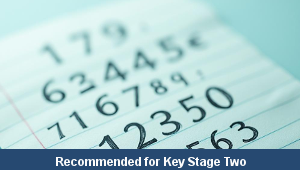Lesson Three – Sentence Changes

This English teaching pack for Key Stage Two gets the children to identify and record how to convert a range of different sentences from traditional tales from the third to the first person including the use of dialogue to indicate character actions and thoughts.
The class can explain and model how aspects of a story’s narrative might change if it had been written from the viewpoint of another character.
Download this teaching pack including a lesson plan, classroom activities and an interactive presentation to identify and record how to convert a range of different sentences from traditional tales from the third to the first person including the use of dialogue to indicate character actions and thoughts
Activities in this teaching pack include a differentiated set of cards and worksheets to identify, match and record a selection of sentences that might appear in traditional tales when writing in the third and first person to describe the narrative story events and character thoughts and actions.
The interactive presentation gets the children to explore how to convert sentences from traditional tales from the third to the first person including the use of dialogue.
This lesson is part of an English scheme of work to get the children to read and adapt a traditional tale changing characters and settings, investigate word families and use inverted commas to punctuate direct speech. There are teaching activities for shared learning, differentiated worksheets to support independent learning and interactive presentations to introduce concepts and key skills.
-

Maths Arithmetic Assessment
Assess abilities in solving arithmetic number problems for addition, subtraction, multiplication and division when working with informal and formal written calculations
-

Environment
Identify and describe some of the special landscapes and locations that can be found in the world and reflect on how they can be protected and preserved for the future
-

Silent Letter Words
Explore and illustrate the meanings and spellings of some different words with silent letters when using them in a range of topics and scenarios
-

Complaint Letters
Explain and model how to format and structure writing when composing letters of complaint about different issues and scenarios
